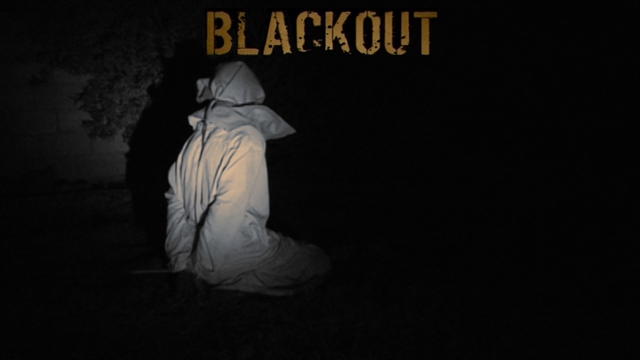Blackout
What's it like to be an American soldier in Iraq? To face constant attacks from the people you came to liberate; be away from your family for years on end and watch your friends die on a regular basis?
 What's it like to be an American soldier in Iraq right now? To face constant attacks from the people you came to liberate; be away from your family for years on end and watch your friends die on a regular basis? This intimate, character led documentary, takes you straight into the soldiers' lives. We follow one company as they conduct raids, go on patrol and relax at base. From the paternal sniper who watches protectively over 'his boys' to the young recruits who just want to go home in one piece, it's a warm and unusual perspective of military life.
What's it like to be an American soldier in Iraq right now? To face constant attacks from the people you came to liberate; be away from your family for years on end and watch your friends die on a regular basis? This intimate, character led documentary, takes you straight into the soldiers' lives. We follow one company as they conduct raids, go on patrol and relax at base. From the paternal sniper who watches protectively over 'his boys' to the young recruits who just want to go home in one piece, it's a warm and unusual perspective of military life.
"When I first got here, I was fighting for what I believed in", confides veteran sniper, Terry. "Now, I'm fighting for my buddies. And if that means shooting someone, that's fine with me." Terry is widely regarded as the natural leader of alpha company. He participated in the initial invasion but found it hard to adjust to life back home. Now, he's returned to Iraq again while his wife sues for divorce.
All of the men here know the dangers that surround. "They'll put IEDs anywhere. They don't care", complains one soldier. "You don't know where they are and you don't know when they're going to go off." Faced with such omnipresent risk, many resort to black humour. "People talk about dying as if it were a game", states engineer, Molina. Two soldiers joke about the insurgents who crossed the wrong wires while making their bombs and blew themselves up. "We went to the house and it was all rubble. It was funny."
The soldiers here are based at Fort Mackenzie, an isolated town in the middle of the Sunni triangle. In many ways, it's very similar to a boarding school. Alcohol and sex are forbidden; televisions are tuned only to sports channels and communications strictly controlled. Whenever a soldier is injured, a 48 hour blackout is imposed. Phone lines and internet connections are cut to prevent any unauthorised information leaking out. This also ensures the soldiers are dependent on the army for news. Molina doesn't seem to know that five soldiers from his brigade were killed yesterday. "They don't say anything to me."
As the death toll has crept steadily up, attitudes towards Iraqis have hardened. "We're here to help this country and they watch our friends die and lie to us," complains Terry. Another sniper talks of the comfort he gets from his job. "You pull that trigger and just relax. You go from scared little girl to superman." However, both men stress that they only target known insurgents. As Terry explains: "We don't fire on anybody unless they fire on us first. I'm only taking out evil."
But it's not always death and despair. Back at base, soldiers are chilling out. They play electric guitars, smoke and gripe about their pay. "Contractors who change my light bulbs gets paid $80,000", states one in disbelief. "Not that we don't appreciate it, but they could give a little money to their brother being shot at." The mood is relaxed and jovial - soldiers almost seem to find it comical how much their civilian counterparts are paid. "Hey, as long as the end of the tour comes round, I say peace."
Suddenly, the mood changes. One of their friends has been killed and others soldiers seriously wounded. "He's got third degree burns all over his body. His skin is peeling off." As news sinks in, blackout is imposed. The cameras stop rolling.
FULL SYNOPSIS


